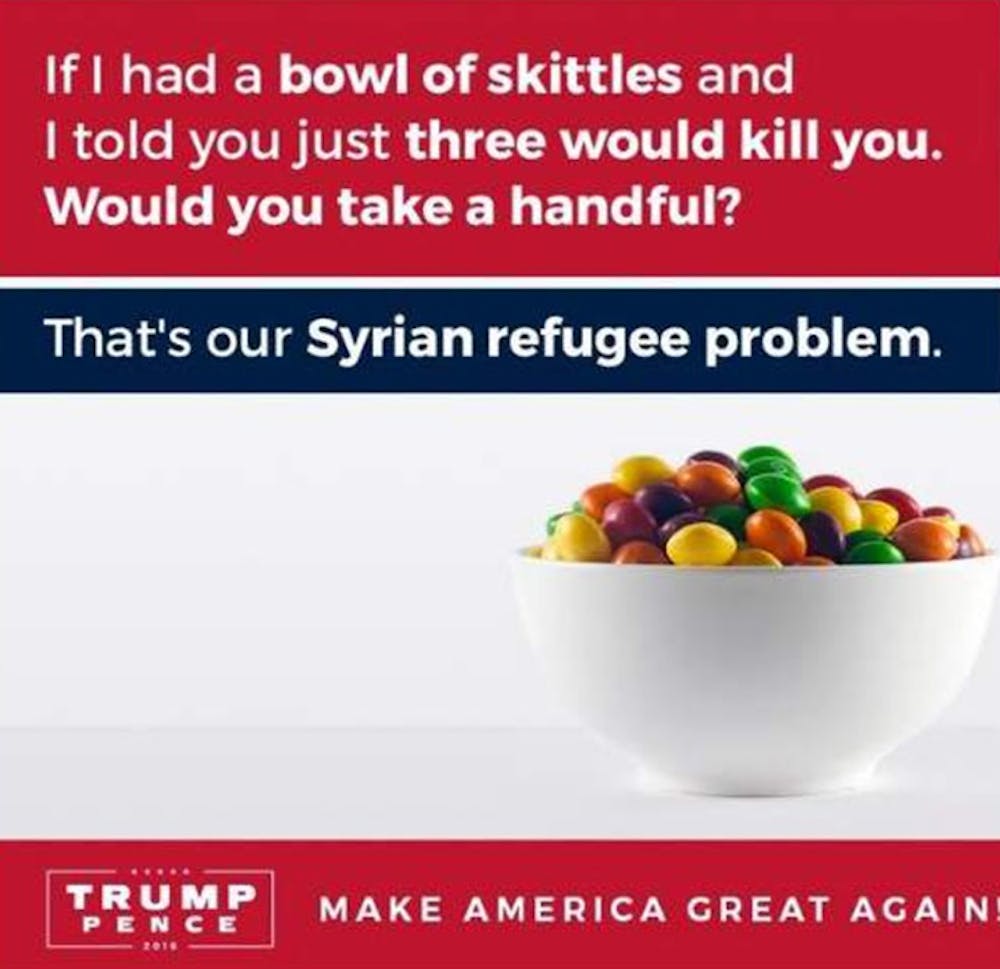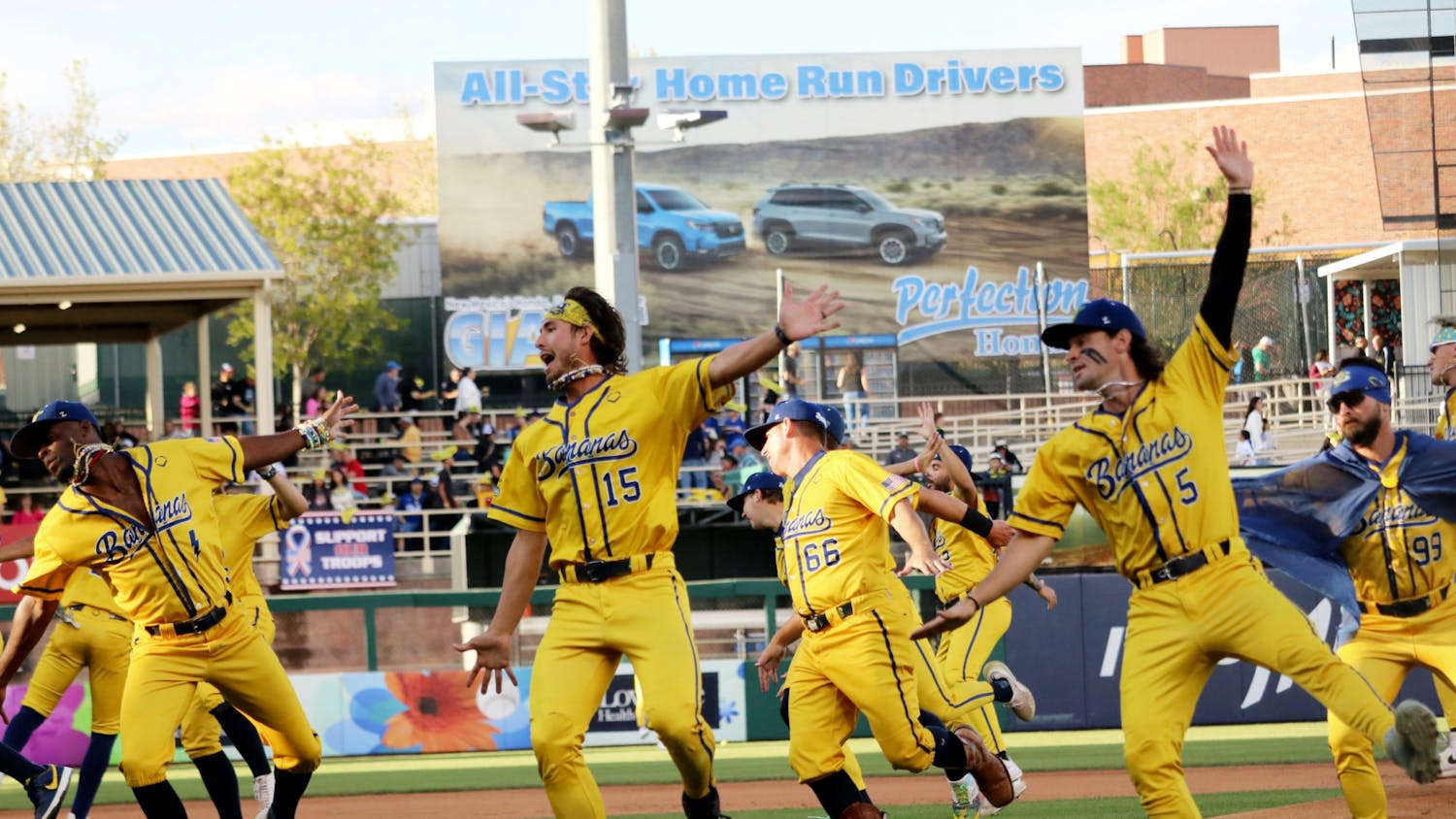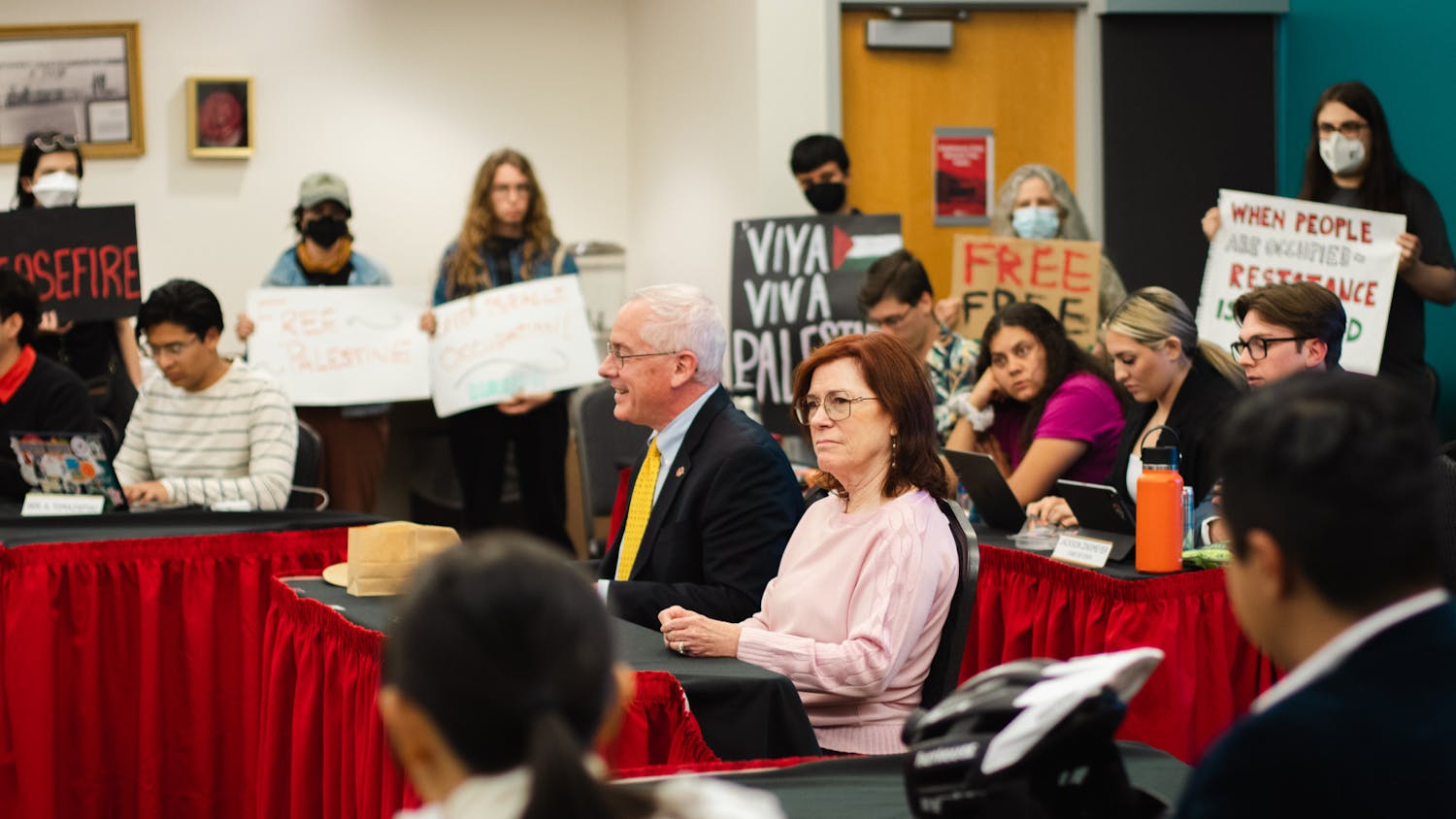Here’s a challenge: try scrolling down your Facebook feed and see how many posts you scroll past before you see a meme.
I got past two posts before a meme came up on my Facebook feed.
When continuing to scroll and continuing to see meme after meme come up on this social network site, I began to see a trend.
An increasing number of memes promote political causes or social causes. They accomplish this in a variety of ways, from using humor to debunk any who opposed the cause the meme was promoting, to losing the humor completely and viciously attacking any who opposed the message.
Now one meme in particular has stood out to me. In fact, it was created to be used against a graphic utilized by the Donald Trump campaign.
In the meme, there is a screenshot commenting on the graphic asking viewers if they would eat a bowl of Skittles if ten of them were poisonous. The original graphic, recently tweeted out by the Trump campaign, compares the process to the controversial issue of Syrian refugees seeking asylum.
But the meme addressed a question that may not have crossed the minds of the viewer: are the other Skittles human lives?
It continued to state that if the individual could save the lives of others, he or she would readily eat all the Skittles including the poisonous ones, concluding that it was dehumanizing to compare people to candy.
Was the purpose of the one who posted or shared the meme on social media to dehumanize a controversial issue? Perhaps, but I doubt it. I have seen anger and hurt feelings spill out over multiple memes from family and friends alike.
Frequently, the meme’s creator didn’t intend to actually hurt the feelings of their peers. Often they didn’t even feel passionately about what the meme accused.
So why post it?
For a variety of reasons, laying text over a photo and sharing it knowing that everyone will know you didn’t write it, distances yourself from the message. If humor is involved, anyone who is insulted by the meme’s brand of humor can simply be told “It’s a joke” or “You know me and I’m not like that.”
Get content from The Daily Lobo delivered to your inbox
Memes create a barrier of sorts, protecting the one who posts the meme from translating the blunt message into a post that could reflect poorly on a person’s character.
While a meme comparing Skittles to Syrian refugees may circulate through Facebook, you will doubtfully see as many personally written posts stating, “I would rather these people die than risk any harm to me and my loved ones, no matter the odds whether small or not.”
Susan Blackmore, author of “The Meme Machine,” said in her book, “One of the problems with the idea of memes is that it strikes at our deepest assumption about who we are and why we are here.”
When seeing a meme, especially those that are made for political or social causes, the meme assumes we have a side on the issue. Not just any side, but a black-and-white view on the issue.
The meme resonates the opinions of not just those who post against or for the meme, but also the opinion of the one who posted the meme in the first place. When we see a post that jokes about an issue that offends us, the human mind can jump to the assumption that the one who posted or shared the meme feels that way. Otherwise, why did they post it?
The way memes empower and take power from us also may come largely from the internet and social media. It’s easier to say or post things on the internet that you would never even consider saying to someone to their face because the internet acts as a shield of sorts. It’s easier to lose empathy when you don’t see the reaction of the one whose feelings you hurt or the one you are dehumanizing in the first place.
Memes are not new, or rather, I should say, the concept of using a single sentence plastered over an image to incite powerful emotions is not new. Propaganda has been around in one form or another since the beginning of civilization.
There have been many books and essays published over the years defining propaganda and delving into its place among human culture, like Bertrand Russell’s “Free Thought and Official Propaganda,” originally published 1922.
It’s now 2016, and we are still allowing images with words to influence us in one way or another, whether the information is cruel, hurtful or even true. Websites such as Snopes.com challenge such misinformation, including that shared by memes.
But the word “propaganda” has a worse connotation than the term “meme.” Does that mean the two are really different?
At times, yes, they are different. Not all memes promote political or social causes — some truly are made to simply entertain. A meme of a cat with its legs outstretched with the term “hug me” underneath is probably not trying to influence you on a large controversial issue. But as individuals, it’s up to us to determine if a meme is propaganda and harmful or not.
Because it’s not a matter of whether the joke stopped being funny and became inappropriate — the joke sometimes never was appropriate in the first place. When looking at your social media site of choice, consider when did we go from memes about cats and cheeseburgers to memes that compare human lives to candy?
Nichole Harwood is a news reporter at the Daily Lobo. She can be reached at news@dailylobo.com or on Twitter @Nolidoli1. The views presented in this column are her own.






